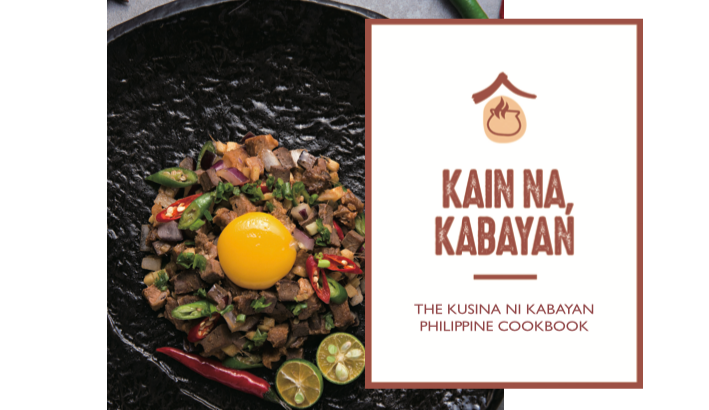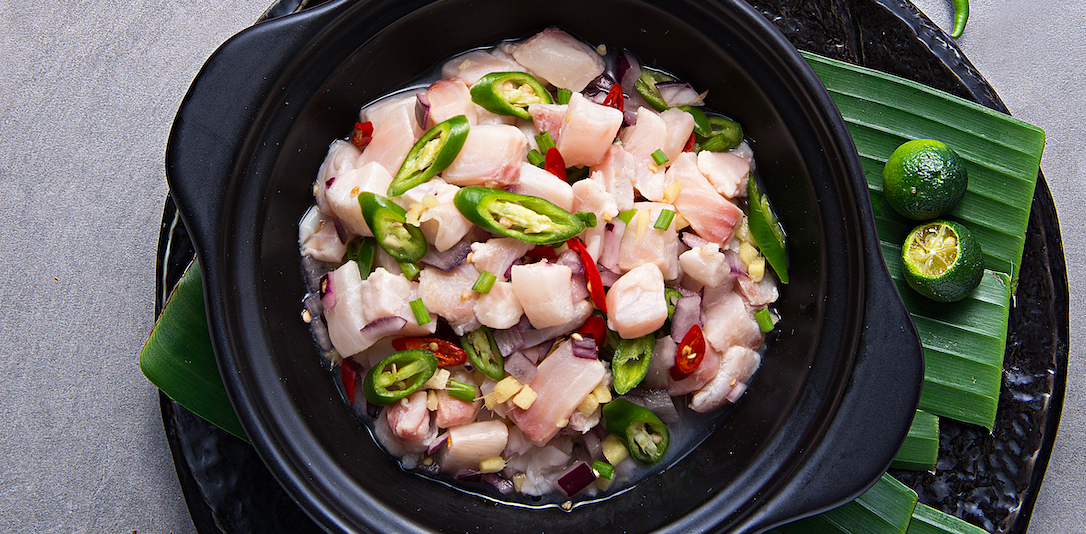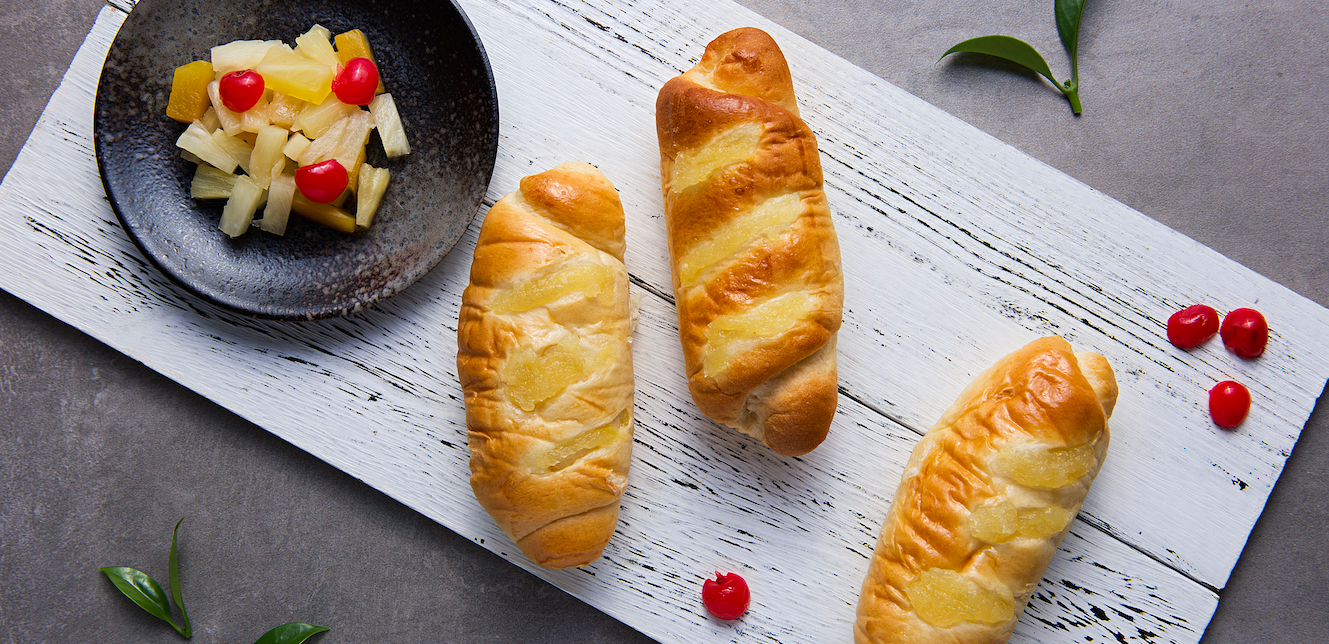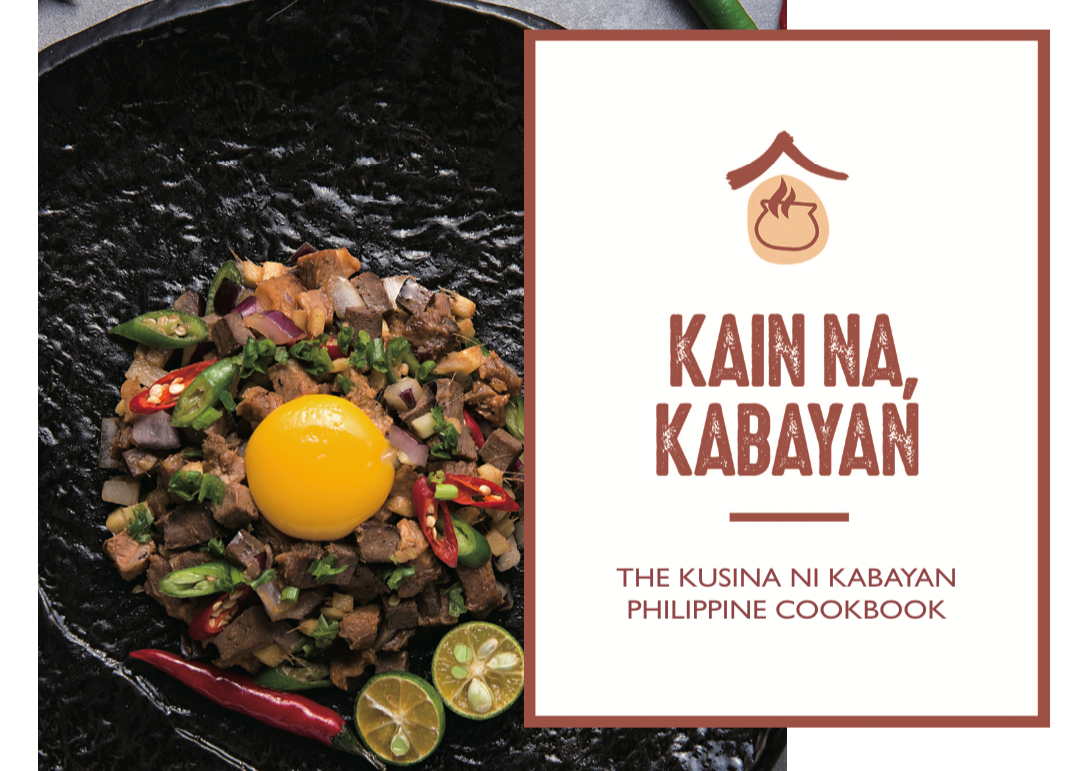The Philippines has been described as the “underdog of Asian cuisines,” but it can hold up against the gastronomic behemoths in the region like Thailand or Vietnam.
Some people have noted the Philippines is experiencing a culinary renaissance and making headway in establishing itself as an Asian gastronomic hub, despite criticism that its cuisine is mediocre and a “salty disappointment.”
But enterprising Filipino food enthusiasts in Beijing are breaking that notion through Kusina ni Kabayan (KnK). The group has represented the Philippines in major food festivals in Beijing, offering expats and locals a taste of delectable Philippine dishes.
Now, the group is taking on another major endeavor: a cookbook whose recipes are made by the group’s professional chefs, home cooks, and foodies. I’ve caught up with its founder Perlita Pengson, who talked about KnK’s newest charity project, Kain na, Kabayan.

What’s the big idea behind the Kain na, Kabayan cookbook?
Perlita Pengson: I created Kusina ni Kabayan (KnK) because of my eagerness to promote Filipino culture through food and I have been fortunate enough to meet Filipinos in Beijing who home-cook their native dishes to satisfy their longing for home.
In the past two years, the community has grown and joined major food fairs, including the past two seasons of the Hot & Spicy Festival. Aside from that, we have also organized our Philippine culinary and cultural events, which have received overwhelming praise. Earlier this year, a team of KnK volunteers has come up with an idea to bring the Filipino cuisine into your kitchen through a traditional way – a cookbook that we named Kain na, Kabayan.
Is there a reason why you chose “Kain na, Kabayan” as the name of the cookbook? You could have used a more familiar name, perhaps, “Filipino Kitchen,” and the like.
Pengson: We thought of that, really. Aside from using the initials of the community group, “Kain na, Kabayan” is an invitation to everyone to eat with us. A big part of our culture is sharing food with family members, friends, or people we’ve just known. It is our way of welcoming them to our home. So, don’t be surprised if you go to the Philippines and someone asks you, “Kumain ka na ba?” (Have you eaten yet?).
What makes the KnK cookbook different from the other Filipino cookbooks in the market?
Pengson: Considering that there is no actual Filipino restaurant in Beijing as of yet, the team has found a way to make this project work. In my 30 years of living in Beijing, I believe Kain na, Kabayan is the first Filipino cookbook formulated in China. We feature six KnK food makers who have put their different take on popular dishes through linking them to Filipino traits or using stories in their hometowns as inspiration. We also have stories about the tastes of Philippine cuisine and why the culture of food sharing in our country is important.
I also want to emphasize that this cookbook project is entirely run by volunteers who have generously shared their passions and time with KnK. The whole team has gone through a lot of sacrifices during the production of the cookbook. But what makes this cookbook and the recipes unique is the heart that every single team member put into this project. I consider them our ambassadors of Filipino food in China.

The cookbook is a charity initiative, isn’t it? What do you aim to achieve in this cookbook?
Pengson: KnK has endeavored to promote Filipino culture and cuisine, as well as the small Filipino food entrepreneurs in Beijing, so that’s one big reason why we published this cookbook. The other important reason is we are doing this to help our beneficiary–it’s a school called Daoidao Elementary School in the northern Philippines. We aim to donate a portion of the cookbook proceeds to fund their infrastructure project, a multi-purpose hall that they intend to use for graduation ceremonies, additional classrooms, PTA gatherings, and other celebrations linked to the school’s centennial anniversary.
This cookbook will bring you closer to the hearts of less fortunate children back home in the Philippines. It will serve as one of the bridges to the bright future of these children and will inspire them to reach their dreams. As someone told me, “We want the children to know that someone is thinking of them somehow.” Imagine that while the cookbook is in your kitchen, a child far away is excited using their new facility.

How long did it take you to finish the cookbook? What were the challenges that you’ve faced?
Pengson: It took us almost six months to finish the cookbook. When we began searching for contributors, a lot of KnK members showed interest to participate, either by contributing recipes or working with the planning team. They understood the purpose of this cookbook and knew the deadlines, but there were participants who had to back out because of commitments. Still, many of the interested members found ways to help the cookbook team, including cooking or doing the food styling of the dishes for the photoshoot or writing feature articles.
Another big challenge was funding. Thanks to the generosity of our sponsors TRB Hutong, EAST Beijing, Raytown Visual, The Bookworm, and all donors and the people who dedicated their passions and efforts to make this cookbook project possible. They are a big reason why we have now the first Filipino cookbook published in China!
How can we buy the cookbook?
Pengson: We will launch Kain na, Kabayan at the Krismas sa Pinas Philippine-Style Christmas Party and Concert on November 30 at EAST Beijing Hotel. You can get your copy there, or meet us at some upcoming winter bazaars in Beijing. You can also contact our official WeChat account (ID: Kusina-ni-Kabayan) to purchase the book, but you have to pay for the kuaidi fee.
Which recipe do you recommend us to try at home?
Pengson: I would recommend you to try all the recipes! They all have different characteristics when it comes to texture and taste. Make it a habit to try one of the recipes a week and invite everyone, because as we mentioned in the cookbook, “Filipino cuisine is best enjoyed with the company of family, friends, and everyone!”
Get a copy of Kain na, Kabayan at the official launch on November 30, 2019 at EAST Beijing. Scan the QR code in the poster below to buy tickets for the event.

Photos: Kusina ni Kabayan

Pingback:Win a Round Trip Flight to Manila, Chinese Lessons, and More at Krismas sa Pinas Raffle | coolkidandy
Pingback:Star Power: Filipina Artist Jensen Moreno Brightens "Superstars" Exhibition in Beijing - coolkidandy
Pingback:Beijing-Based Filipino Group KnK Holds Fundraiser for Taal Volcano Eruption Victims - coolkidandy